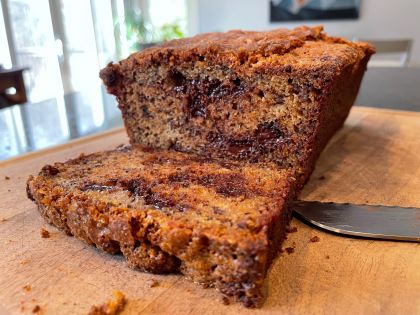I decided that on my drive to California, I would stop at a Burger King and try the Impossible Whopper, a plant based burger being sold by the fast food chain.
Did it really taste like "meat"? Was it good?
First the good things:
It tasted fine. I doubt I would have noticed the difference from a regular Whopper. If you or someone you know is eating regular fast food burgers, I'd highly recommend eating the Impossible Whopper instead. In comparison to even the best hamburger you can find at pretty much any restaurant or grocery, the Impossible Whopper is going to be WAY better for the environment. Hands down.
For clarity, the conventionally grown and massively processed Impossible or Beyond Meat burgers are NOT good for the environment. It is just less 'bad'.
I still will agree with them that the vast majority of "local'"and "happy" beef is significantly worse. Most of that marketing you see at natural food stores? It is just greenwashing.
If those "local farms" don't publicly share their full standards, it is probably safe to assume that the modern veggie burgers are notably better for the environment - no matter how fancy the store is that sells it.













Comments (2)
Emily:
Jan 31, 2020 at 10:33 AM
Thanks for sharing your experience. I am confused after reading your post though. Are you saying that local, grass-fed beef is not better for the environment than a mass produced "veggie" burger? Or that a lot of products that you see at your local grocery store aren't as "good" as they seem because of marketing?
Jack McCann:
Jan 31, 2020 at 09:00 PM
Thanks for asking!
The short answer is: Marketing and Greenwashing
The longer answer is that beef can be either the best option for the environment by sequestering so much carbon in the soil that it more than offsets the methane released OR it can be the worst option.
This 'good for the earth' beef only happens if the soil is managed really well…. The beef has to be rotationally grazed (i.e moved to fresh grass on a frequent basis)… Just being ‘grass fed’ doesn’t mean good for environment or healthy.
Sadly, few grass fed beef are raised like you read about in a Michael Pollen book… practically none of that is in a grocery store or co-ops.
A lot of 'grass fed' beef is raised on feedlots just like the regular beef. It isn’t going to be better for the environment and I suspect there is an argument that is could even be worse.
A few examples: There were several lawsuits or complaints alleging that Grass Run Farm was feeding distiller grains to their beef.
A friend of mine toured a Whole Foods feedlot operation for their grass fed beef. According to him, they were feeding all kinds of stuff that isn't grass, but is allowed under the loose definition of 'Grass Fed'.
One of the largest 'local' beef operations is frequently marketed as 'grass fed' in restaurants or grocery stores even though they are finished like regular conventional beef getting a normal ration of grains and their website clearly lays out that they feed the GMO corn byproducts from ethanol plants which will also be full of antibiotics or other chemicals from that process.
In fact, a local co-op recently tagged this brand as #grass-fed in their marketing social media posts and their full page article about the beef was wildly misleading. It implied the beef was non-GM by saying the beef was fed non-GM silage. The article totally ignored the other GMO items and grains the beef is fed.
It isn't clear if the marketing staff are misleading their members on purpose or if they are just not doing their job properly (all they had to do was ask a few questions or read the brand’s website)
The beef that is ‘good’ for the environment is unlikely to be found at a national chain or even a fancy local co-op.
Sadly, yes, from a purely environmental perspective, plant based alternatives are probably better than what you will regularly find in a grocery. Now… it doesn’t taste as good and probably isn’t as healthy, but from an environmental perspective… the science seems clear to me.
Add a Comment
Add a Comment